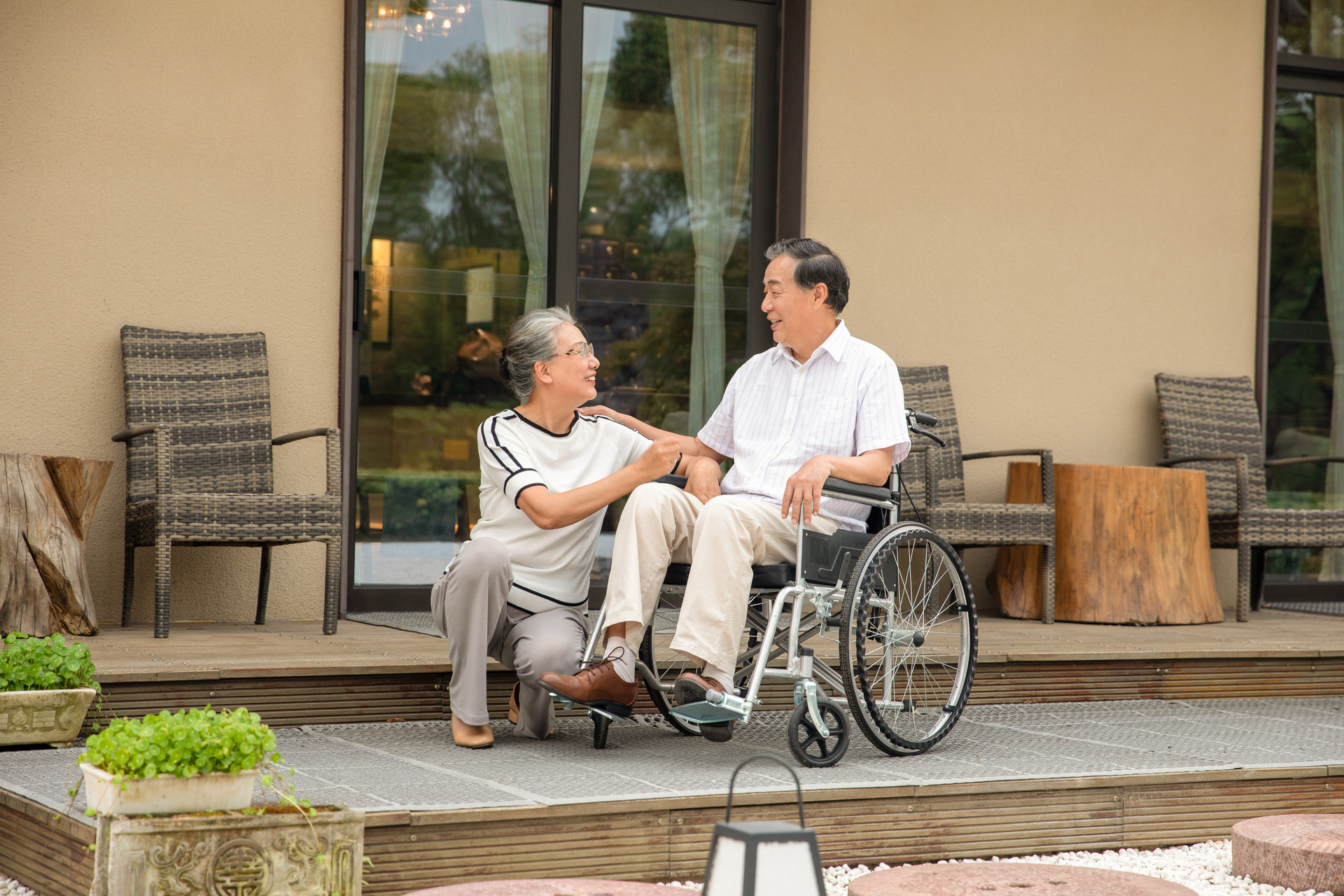Seeking ways to live a long and healthy life, free from illness, has always been a common desire. People have gradually discovered that the kidneys are closely related to one's lifespan. Strong kidneys reflect vitality, kidney deficiency is a major cause of diseases, and kidney failure is the root cause of aging. Therefore, the key to achieving longevity lies in nourishing the kidneys.
Ancient people pointed out that at the age of ten, the five organs are established, and the qi flows smoothly, which is why children love to run. At the age of twenty, the qi is at its peak, and muscles start to develop, which is why young people enjoy brisk walking. At the age of thirty, the five organs are fully established, and muscles are strong, so people prefer to walk slowly. At the age of forty, the organs are balanced and stable, leading to a preference for sitting. At the age of fifty, liver qi declines and vision starts to deteriorate. At the age of sixty, heart qi declines, leading to increased worries and blood and qi becoming sluggish, resulting in a preference for lying down. At the age of seventy, spleen qi weakens and the skin becomes dry. At the age of eighty, lung qi declines, leading to speech impairments. At the age of ninety, the organs and meridians become empty. At the age of one hundred, all the organs are weak, the spirit disappears, and the body perishes. It can be seen that the growth and aging of the human body are closely related to the vitality and decline of kidney qi. Therefore, it is said that "with strong kidney qi, one can live longer, and with weak kidney qi, one's life will be shortened."
After the age of forty, nourish the kidneys and replenish yin
In the "Su Wen - Five Constant Virtues" it is stated that "longevity depends on the nourishment of yin essence." The "Su Wen - Yin Yang Application" also states that "at the age of forty, the yin qi is mostly depleted, and daily activities decline." This indicates that aging is a result of yin qi depletion. Yin qi mainly refers to the essence and blood of the liver and kidneys. Insufficient essence and blood can easily lead to the manifestation of old-age yin deficiency. Therefore, the method of promoting longevity should also focus on nourishing the kidneys and replenishing yin. Commonly used herbs include cooked rehmannia root, goji berries, polygonum multiflorum, mulberry fruits, euryale seeds, ligustrum fruits, Solomon's seal rhizome, and black sesame seeds. Traditional Chinese medicine formulas such as "Tonify Kidney and Prolong Life Pills" and "Er Zhi Pills" are also commonly used. For those with signs of yin deficiency such as emaciation, restlessness, yellow urine, dry stools, dizziness, tinnitus, insomnia, and vivid dreams, Liu Wei Di Huang Wan and Zuo Gui Wan are more cost-effective options.
After the age of fifty, nourish the water and nourish the wood
In the "Su Wen - Ancient Times and Pure Nature" it is stated that "at the age of fifty-eight, kidney qi declines, hair falls out, and teeth become weak." "At the age of seventy-eight, liver qi declines, tendons become immobile, and the essence diminishes. As the kidneys weaken, the body deteriorates." It can be seen that as the body ages, kidney qi declines and the functions of organs such as the liver gradually deteriorate. Traditional Chinese medicine believes that the liver and kidneys share the same source. The liver stores blood, and the kidneys store essence. Essence and blood interact with each other. The liver corresponds to wood, and the kidneys correspond to water. Water can nourish wood. If the kidney water dries up, it cannot nourish the liver wood, leading to the simultaneous decline of the liver and kidneys. To promote longevity, it is important to nourish the kidneys and liver together. Commonly used herbs include ligustrum fruits, dogwood fruits, schisandra berries, euryale seeds, polygonum multiflorum, mulberry fruits, achyranthes roots, eucommia bark, raspberry fruits, lycopodium, and dodder seeds. The ancient formulas such as Shou Wu Wan, Gou Qi Jing, Er Huang Wan, and Sang Shen Gao are all famous prescriptions for nourishing the liver and kidneys, nourishing blood and essence, improving hearing and vision, and promoting longevity. They are particularly suitable for those with hearing loss, blurred vision, and poor circulation. At the same time, Chinese medicine emphasizes the importance of maintaining a happy and calm state of mind, as it also contributes to physical health and longevity.
In one's seventies, nourish the kidneys and cultivate the earth
The spleen is the foundation of acquired constitution, and the kidneys are the foundation of innate constitution. They nourish each other physiologically and influence each other pathologically. In the process of aging, the spleen also plays an important role. If the spleen and stomach are weak and cannot nourish the innate constitution, it will lead to weakened kidney essence and accelerate the aging process. Therefore, nourishing the kidneys and cultivating the earth is also essential for promoting longevity. Commonly used formulas include Qiong Yu Gao, Ren Shen Gu Jing Wan, and Da Fu Ling Wan, as well as the Qianlong Longevity Prescription for strengthening the spleen and nourishing the kidneys. These are all suitable options for the elderly with both spleen and kidney deficiencies.
In one's eighties, nourish the kidneys and moisturize the lungs
Elderly people often experience shortness of breath during physical activity and coughing when ill, which are closely related to the dysfunction and decline of the lungs and kidneys. The lungs correspond to metal, and the kidneys correspond to water. Metal can generate water. When the lung yin is sufficient, it nourishes the kidney and ensures the vitality of the kidneys. At the age of eighty, lung qi declines (as stated in the "Ling Shu - Celestial Years"), and the body and lungs deteriorate. By nourishing the kidneys and moisturizing the lungs, it is possible to delay the aging process. Herbs such as goji berries for nourishing the kidneys and moisturizing the lungs, Chinese yam for tonifying the lungs and strengthening the kidneys, schisandra berries for tonifying the kidneys and invigorating qi, moistening the throat and stopping cough, and coix seeds for invigorating the spleen and tonifying the lungs can be used. Formulas such as Huang Qi Gao, Shen Lian Yin are also effective for nourishing the lungs and kidneys and promoting longevity.
In one's nineties, regulate kidney qi
When a person reaches their nineties, their kidney qi is about to decline and the meridians become empty. This can lead to symptoms of weak waist and knees, aversion to cold, and multiple illnesses due to insufficient kidney essence. To nourish kidney yang, herbs such as deer antler, epimedium, horny goat weed, cistanche, gecko, and cynomorium can be used to resist aging. Alternatively, a decoction can be made using 15 grams each of cooked rehmannia root, ligustrum fruit, cistanche, and achyranthes root. The decoction can be used to stew pork ribs with scallions, ginger, and various seasonings, and consumed regularly. Medications such as Yan Sheng Hu Bao Dan and Gui Ling Ji can also be used to nourish the kidneys, assist yang, and promote longevity.
In conclusion, due to the close relationship between the kidneys and one's lifespan, as the body ages and the balance of yin and yang, qi and blood, essence, and body fluids fluctuate, the kidneys and other organs such as the spleen, heart, lungs, and liver also undergo corresponding changes. Therefore, the key to promoting longevity lies in a comprehensive approach that addresses both the root cause and the symptoms. Only in this way can one achieve long-term health and longevity, as the saying goes, "live to a hundred years old and then depart."










